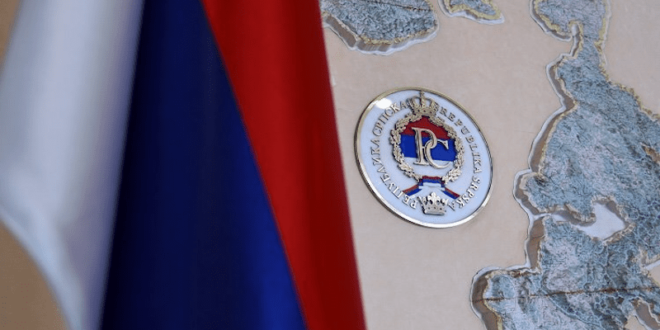Civil society organisations in Bosnia’s mainly Serb-populated Republika Srpska entity are counting down the days until lawmakers begin debating a bill to restrict the work of non-profit organisations that receive foreign funding.
Critics of the bill, which appears inspired by similar legislation in Russia, say it smacks of authoritarianism and will have a major impact on the work of non-governmental organisations trying to protect democracy, media freedom, and human rights in Republika Srpska, one of two entities that make up Bosnia and Herzegovina.
The draft was adopted by the Republika Srpska government in late September and will go to the assembly once a public consultation period closes in mid-December.
If adopted by MPs, the legislation will create a special register of non-profits that receive funding from foreign entities, “regulating conditions and procedures for ensuring transparency in their operations”.
In practice, such organisations will have to submit semi-annual and annual financial reports detailing how much money they receive and from whom. Such organisations will be prohibited from engaging in political “activity” and gives the government discretion to declare them “agents of foreign influence”.
Experts say the move will have a devastating effect on civil society in Republika Srpska, as the latest restriction of rights under Bosnian Serb leader Milorad Dodik.
“Any proposal to change a law, any human rights activity, any research, any comment on political decisions could be defined as political activity,” said Jovana Kisin-Zagajac, a Banja Luka-based lawyer.
Under the current law, NGOs are prohibited from direct participation in elections, but a ban ‘political activity’ could be applied to a much broader range of work, such as rights advocacy.
“In essence, that is the most problematic part of this law, as it adds a new way of regulating non-profit work.”
Minister’s right to ban
According to the draft, the justice ministry, in collaboration with the tax service, will monitor the finances of non-profits.
It defines a ‘foreign entity’ as “a government, executive body of another state, a foreign political party, or a person without citizenship of Bosnia and Herzegovina and residence in Bosnia and Herzegovina, or a legal entity or a group of legal entities organised according to the regulations of another state or with headquarters in another state.”
The draft gives the minister of justice the right to ban a non-profit if it is deemed to have broken the law.
“It is legally unacceptable that an individual has such a right,” said Kisin-Zagajac.
It also envisages financial penalties ranging from 1,000 to 5,000 Bosnian marks, of 500-2,500 euros.
Defamation
Currently, there are 25,646 NGOs listed in a state-level justice ministry database.
The current draft does not regulate the work in Republika Srpska of organisations registered in Bosnia’s other entity, the mainly Muslim and Croat Federation, but Kisin-Zagajac said this may change before the bill is put to the vote.
The changes will, however, apply to international organisations registered in Republika Srpska.
“If, let’s say, Transparency International is registered in Banja Luka, they will have to submit all these reports,” Kisin-Zagajac said. “But another discriminatory fact of this law is that if, for example, I apply for a project funded by international donors, and someone else on the same project, just funded by some state-level ministry, they will not have to submit these reports.”
Sinisa Vukelic, head of the Banja Luka Journalists’ Club and editor-in-chief of business portal Capital, said the bill spells trouble on several fronts.
“This is a clear continuation of the repression of freedom of speech, especially after defamation was criminalised again,” Vukelic told BIRN, referring to criminal punishments for defamation reintroduced in July 2023. Capital, which is registered as a non-profit, will also be subject to the law.
If the bill passes, all activities funded by foreign donors will have to be marked as “financed by foreign influence”.
“We would have to post that sentence on all of our investigative articles, every social media post, anything we do which is supported through project money,” said Vukelic.
Currently, the draft does not regulate foreign grants given via third parties registered in Bosnia and Herzegovina. Vukelic said the Republika Srpska government might still see its “mistake” and include this too before the draft comes to a vote.
Media impact
Criticising the criminalisation of defamation as “a substantial regression”, the European Commission, in this year’s report on Bosnia’s progress towards membership, said the foreign agent bill “would constitute another unfortunate and undeniable step backward”.
Vukelic told BIRN: “We are hoping that the criticism coming from local and international critics will be heeded and that the draft will be rejected, but that is unlikely to happen.”
The information field is one of a raft of areas that the draft does not classify as ‘political activity’, but critics say they fear the media will be targeted anyway.
“The new media law which is currently being drafted will further limit the work of non-profit media, in addition to the registry bill which will for sure,” said Kisin-Zagajac.
Small media outlets, frequently registered as non-profits, and investigative outlets will suffer most, said Vukelic.
“We’re making plans on how to protect ourselves when it comes to the legal side, as we don’t want to publish the ‘foreign agents’ mark next to everything we do,” he told BIRN.
“But we still want to keep it low-profile. If they [the government] see it, they will try to include that part as well before the final law is voted on.”
 Eurasia Press & News
Eurasia Press & News



